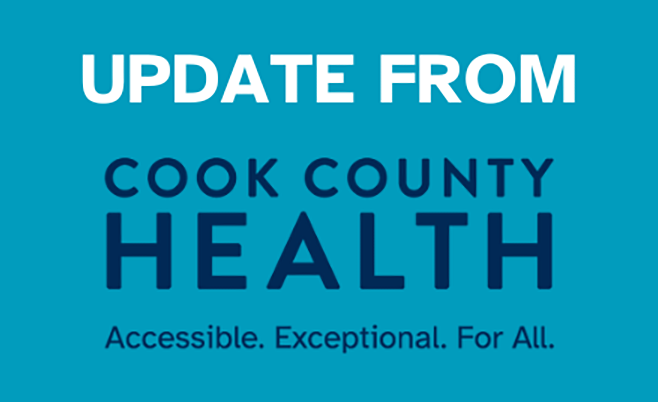President Preckwinkle Highlights Public Health Benefits Of Cigarette Tax
Increase will generate more than $25 million and save residents from premature smoking-caused death
Cook County Board President Toni Preckwinkle was joined today by Dr. Raju and other health professionals and anti-smoking advocates to highlight the public health benefits of the $1-a-pack cigarette tax increase set to take effect tomorrow, March 1.
“By making cigarettes more expensive in Cook County, we are representing the societal cost of smoking,” President Preckwinkle said. “It is a proven public policy tool that will bring in needed revenue for our public health system, while lowering smoking rates and preventing people from picking up the deadly habit.”
President Preckwinkle cited a study from the New England Journal of Medicine released earlier this year that found smoking shortens life expectancy by at least 10 years and it is the leading preventable cause of death in the United States.
The $25.6 million in anticipated revenue will go towards the Cook County Health and Hospitals System, which, among other vital services, treats more than 300 lung cancer patients each year.
“We have worked diligently with the support of Cook County to lead the way and help people quit smoking. Our medical staff is well trained and deeply committed to helping patients and employees quit,” said Dr. Ram Raju, CEO, Cook County Health & Hospitals System. “Our health system has helped build specific programming that has increased the numbers of those that have successfully quit. An aggressive anti-smoking policy is good public health practice and makes a lot of sense for Cook County.”
Preckwinkle also pointed to an analysis by the Campaign for Tobacco-Free Kids which focused on the local impact of the cigarette tax increase. It showed that roughly 10,300 Cook County residents will be saved from premature smoking-caused death. The increase also is projected to lead to a 7.2 percent decrease in youth smoking and prevent 18,400 children from becoming addicted adult smokers. The increase has the added benefit of getting roughly 16,100 current adult smokers to quit smoking.
Cook County’s Department of Public Health is preparing an anti-smoking campaign which will begin later this month. It will focus on youth tobacco prevention and include television ads, bi-lingual print ads, and ads on buses and in shelters.
“After the $1 per pack cigarette tax increase goes into effect in Cook Co. on March 1, Chicago will become the second most expensive place in the nation to buy cigarettes, surpassed only by New York City,” said Dr. Sandra Burke, president of the Chicago Metropolitan Board of Directors of the American Heart Association and American Stroke Association. “While this is a point of pride for the American Heart Association, we know it will be a point of irritation and anger for smokers. Frankly, that’s exactly what we’re counting on. Hopefully, this increase in the cost of cigarettes will be the straw that broke the camel’s back, motivating some smokers to quit this deadly habit.”
Preckwinkle also was joined at the news conference by representatives from the American Cancer Society, American Lung Association, Illinois Coalition Against Tobacco and Respiratory Health Association of Metropolitan Chicago.
President Preckwinkle made clear that the County is prepared for those who try to circumvent the County’s new tax by smuggling, purchasing and distributing cigarettes without County stamps. The County has nearly doubled the number of inspections it performs, tripled the number of tobacco inspectors and collected roughly $1.3 million in cigarette tax fines last year. In 2013, the Department of Revenue will hire more staff to boost compliance and crackdown on tobacco smuggling and tax evasion throughout Cook County.
###

